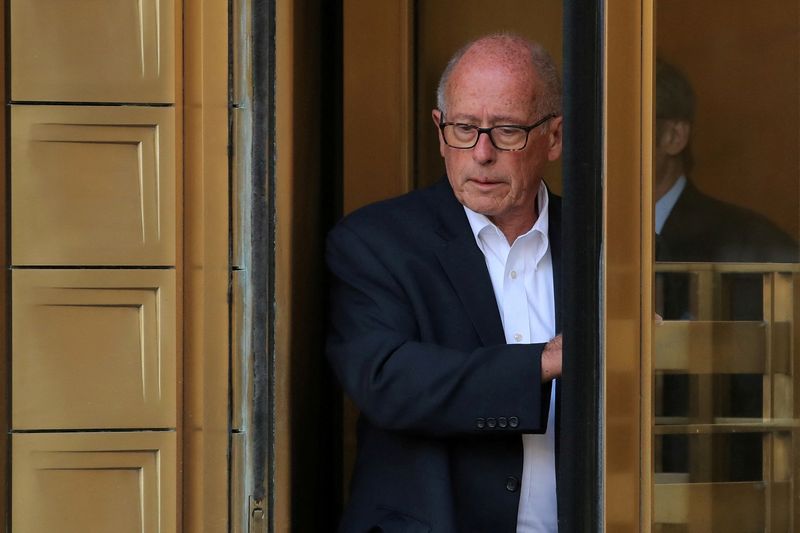By Brendan Pierson
NEW YORK (Reuters) -The former chief executive of Rochester Drug Co-operative was sentenced to more than two years in prison on Wednesday for conspiring to distribute opioids illegally, in the first criminal opioid trafficking case against a drug wholesaler and its executives.
U.S. District Judge George Daniels sentenced Laurence Doud, 79, to 27 months at a hearing in Manhattan. Daniels said Doud's crime was serious and "motivated solely by profit," but that the government's requested sentence of 15 years was more than needed.
Daniels ruled that Doud may remain free on bail while he appeals his conviction to the 2nd U.S. Circuit Court of Appeals.
"Laurence Doud cared more about his own paycheck than his responsibility... to prevent dangerous opioids from making their way to pharmacies, drug dealers and people struggling with addiction," U.S. Attorney Damian Williams said in a statement.
Robert Gottlieb, one of Doud's attorneys, called the sentence "very thoughtful and appropriate."
Gottlieb had argued during the sentencing hearing that Doud should avoid jail entirely because he did not intend drugs to be sold illegally.
Doud himself, before being sentenced, told the judge that he had "no desire to see anyone be hurt."
"I recognize what a lousy job I did," he said. "I am forever sorry for the problems that have occurred because of this."
Rochester Drug Co-operative (RDC), Doud and another executive were charged in 2019 with conspiring to distribute illegal narcotics and accused of ignoring clear red flags that the drugs were being sold illegally, such as large bulk orders of pills and payments in cash.
Doud was convicted in February 2022. The other executive, Chief Compliance Officer William Pietruszewski, pleaded guilty and testified against Doud. He is scheduled to be sentenced on March 29.

RDC, which filed for bankruptcy in 2020, agreed in 2019 to pay $20 million to settle criminal and civil charges related to its opioid sales.
More than half a million people died from drug overdoses in the United States in the period from 1999 to 2020, according to the U.S. Centers for Disease Control and Prevention.